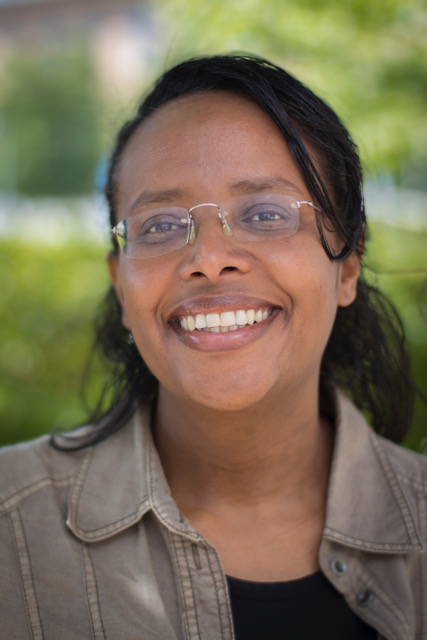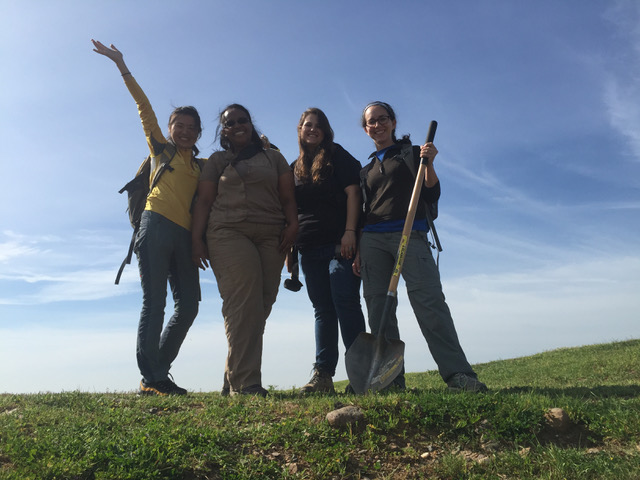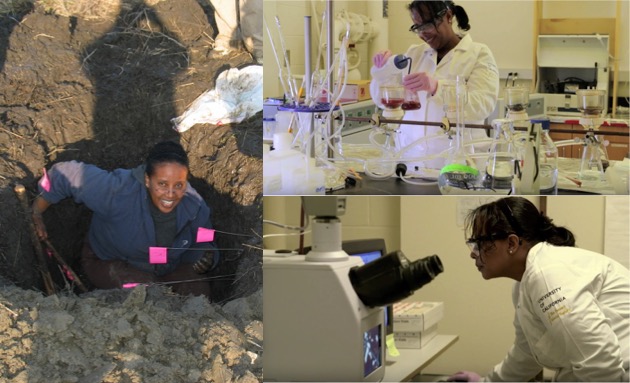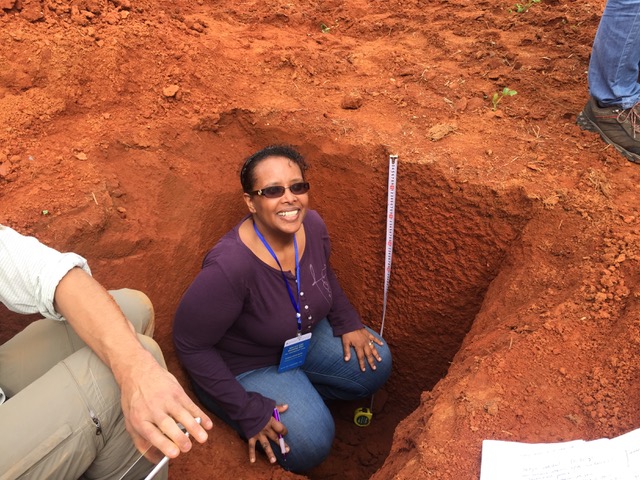Political ecology is field of study that brings together fundamental biophysical/chemical understanding of natural processes, with human needs (including use, overuse, and abuse of natural resources), and the political-economic context in which these human-environment interactions take place. I received my B.Sc. in Soil Science (Soil and Water Conservation), and I received great training in the biophysical and chemical aspects of soil science, and the fundamental issues surrounding land degradation. But, to gain a more wholistic understanding of the causes and solutions for land degradation, I was drawn to study Political Ecology of Land Degradation for my Masters degree. During my M.Sc. studies at Michigan State University, I sought to gain better understanding of the social/political, in addition to ecological, context of land degradation. In particular, I was interested in how armed conflicts cause and exacerbate the ever growing global problem of land degradation.
Studying political ecology of land degradation was critical in expanding my worldview and understanding of the soil system and land, beyond what we typically study in the natural sciences. This background in Political ecology has been critical in my further studies in Biogeochemistry (that I studied for my PhD at the University of California, Berkeley) and how I approach teaching and research in Earth and Environmental Sciences. I try to incorporate socio-political, and economic considerations on topics related to anthropogenic disturbances and natural perturbations in the environment (ex. fire, erosion, and climate change).
You started your scientific career in Eritrea. How has that background influenced the kind of scientist you are today and where your concerns lie, both inside and outside the lab?
Starting my scientific training in Eritrea has influenced the kind of scientist that I am today because it motivates me to consider how diversity of backgrounds affects our approach to science, research, teaching, etc. I am also able to relate to students and others in our community from different backgrounds relatively easily. Furthermore, it opens my worldview about how different the realities of every day life can be from what we are dealing with here.
You're in the early stages of your career, and you've already received a number of high recognitions and awards. What's the best piece of advice you've received as a scientist starting her own lab? What advice do you have for women who are soon to be in your position?
I think the best piece of advice that I have for junior scientists is to find a way to stay in the game. There can be very many challenges junior scholars face, many times the challenges are so daunting that too many of them drop out of the pipeline or can’t be as productive as they aim to be. Some of the things that helped me, and that I tell my mentees are:
1.Find supportive mentors - take charge of your mentoring. Find multiple people that can be your mentors in the variety of needs that you will have. Recognize that the challenges you might face and your mentoring needs will change over time, and you will need different people to seek support from. Especially make sure that you have peer mentors that you can interact with regard to different stages of your education and career, including job search.
2.Write and continue to practice writing, esp. learn to write successful proposals.
3.Be goal oriented.
4.Be an active member of your academic community.
Establishing yourself as a young scientist in academia can be as taxing as it is rewarding. So what do you outside of work do relax and unwind?
Some of the things that I do to relax and unwind are spend time with my kids and husband cooking, traveling, hiking, swimming and reading.

Dr. Asmeret Asefaw Berhe is an Associate Professor of Soil Biogeochemistry at the Life and Environmental Sciences unit at University of California, Merced. Dr. Berhe was a University of California President’s Postdoctoral Fellow (2006-2008) at the Department of Earth and Planetary Sciences, University of California, Berkeley and at the Department of Plant science, University of California, Davis. Prior to that Dr. Berhe received her Ph.D. in Biogeochemistry from the University of California, Berkeley; M. Sc. in Resource Development (emphasis on Political Ecology of Land Degradation) from Michigan State University, and B. Sc. in Soil and Water Conservation from University of Asmara, Eritrea. Prof. Berhe's work focuses on biogeochemical cycling of essential elements (esp. carbon and nitrogen) in the soil system and how physical perturbations in the environment (ex. erosion, fire, changes in climate) affects stability and mechanisms of stabilization of soil organic matter. Prof. Berhe is a recipient of several awards including the National Science Foundation’s CAREER award, the Young Investigator Award from Sigma Xi, and the Hellman Family Foundations award for early career faculty.



